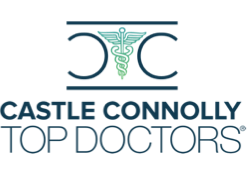I was honored to be selected by Becker’s Spine Review in July 2012 as a “Top Spine Surgeon Leader for Non-Profit Hospitals” and then again in October 2012 as a “Spine Surgeon Leader to Know.” This month, Becker’s Spine Review interviewed me again for “8 Ways Spine Surgeons to Leave a Lasting Mark on the Field.” Below please find my answers, as dictated to Editor-in-Chief Laura Miller.
Spine surgeons have a huge responsibility to provide safe, effective and cost-effective care to patients on a daily basis. However, for surgeons who want to go the extra mile to impact spine care beyond their practice, there are several avenues worth exploring.
Advocate for healthcare policy. As healthcare reform moves forward, it will be crucial for spine surgeons to participate in local and national advocacy efforts to positively influence healthcare policy. Surgeons understand what their patients need and have several options to ensure their voices are heard.
“One of the big things surgeons can do today is advocating for health policy to protect the ability to provide patient care, access to care and procedure coverage,” says Sean McCance, MD, co-director of spine surgery at Mount Sinai Hospital and director of Spine Associates in New York. “There are several things surgeons can do at the grass roots level, including speaking to patients about what is happening to healthcare, as well as at the policy level. Work directly with legislators to make sure they understand the issues we face every day; in these interactions, educate them.”
Surgeons can also write letters or contact their representatives personally and contribute money to representatives supporting their values. Spine surgeons can also contribute to political action committees at the local and national level. The North American Spine Society’s PAC funds efforts to lobby congressional members in Washington, DC, for surgeon and patient interests.
“The denial of care is more frequent now and it’s hitting home as more surgeons and patients become aware of it,” says Dr. McCance. “This is leading people to become more involved and contribute in any way they can.”
Be an early adopter for new and appropriate technology. Spine is a rapidly developing field and adopting new technology early will establish you as a leader in the field. However, make sure this new technology is appropriate and safe for your patients before incorporating it into your practice.
“Look carefully at data behind these technologies to see what is appropriate,” says Dr. McCance. “If you are inclined, work with industry to develop these technologies to meet the needs of the field.”
Once you achieve good outcomes with the new technology, you can teach and mentor others. However, be aware of financial incentives from device companies and always disclose any conflicts of interest.
Become an accurate and trusted voice for spine patients online. Patients are increasingly turning to the internet for information and education about their medical conditions, and some of the information posted is inaccurate. Spine surgeons and specialists devoted to patient education can develop written or video content to point patients in the right direction.
“There is a huge educational possibility for physicians who want to have an impact beyond patient care on the internet,” says Dr. McCance. “There is a lot of market-driven commentary on the internet about spinal implants or procedures, and it’s important for competent physicians to provide educational information about the realities of spine surgery for patients.”
Much of the fear of spine surgery today stems from inappropriate information people find online about failed surgery, without hearing the success stories. “Experts can debunk myths about spine surgery and give a voice to accurate research data and clinical outcomes,” says Dr. McCance. “This information can be used to counteract the unfiltered and inaccurate information that can be found on the internet.”









